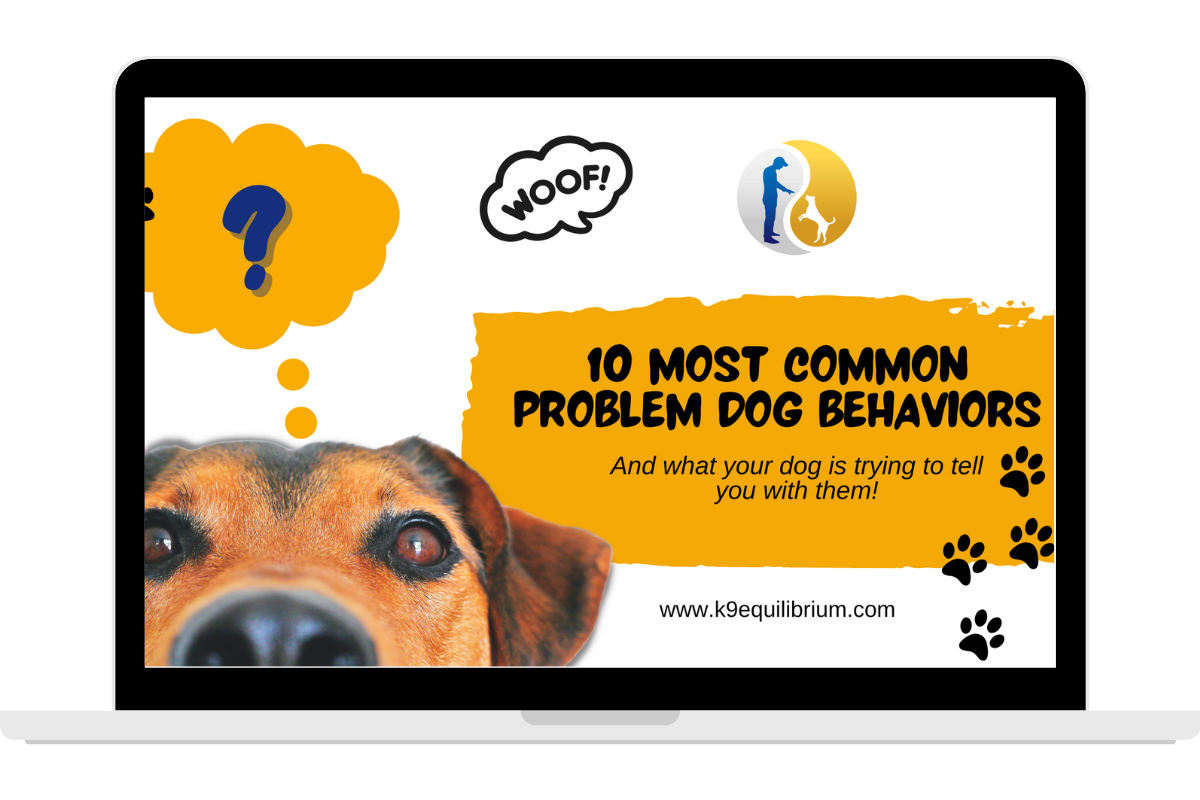Your dog wants a better relationship with you…
Do you know how to give it to them?
K9 Equilibrium specializes in nurturing happy, healthy, and balanced companions for life and I will guide you and your dog so that you can…
✓ Improve Communication
✓ Build Trust that you BOTH are having your needs met
✓ Foster a Relationship to last a lifetime
Has your dog started to act out?
The first question you should be asking yourself is Have I stopped listening?
Your dog is communicating with you! He always is.
The problem is that neither of you speak one another’s language and that can create obstacles that are a lot bigger than a chewed couch cushion or ‘rearranged’ blinds.
Miscommunication between a dog and his person is at the core of the vast majority of problem behaviors and those behaviors rarely if ever go away on their own.
I understand the many challenges that come with interspecies communication.
I am a Certified Professional Dog Trainer (CPDT-KA) and one of the requirements to maintain that certification - in addition to hundreds of hours of hands-on practice with a variety of canines - is to better my understanding of non-aversive dog training techniques and canine psychology/body language analytics several times a year.
This helps ensure that I will do my absolute best to stay up to date on the leading scientific data available so that I can help guide you and your companion into a more balanced life together.
-
The Certification Council for Professional Dog Trainers® (CCPDT®), established in 2001, is the leading independent certifying organization for the dog training profession. The CCPDT is the leader in the development of rigorous exams to demonstrate mastery of humane, science-based dog training practices.
Please visit: www.ccpdt.org to learn more.
I’m happy to provide proof of my certification upon request. -
From understanding and checking your pet's vital signs, to preventative care for cats and dogs, to caring for the most critical emergency situations - including breathing and cardiac emergencies, wounds, bleeding, and seizures.
Please visit www.redcross.org to learn more
Proof of certification is available upon request.
Are You Ready To Build A Stronger Relationship with your dog?
1. Call to set up a visit
Every relationship is unique, and it’s only through observation that I can adequately do an assessment. My first visit is always 100% free and usually lasts about 45 minutes, during which We will discuss your goals and the challenges you and your dog are facing need, and I’ll review your dog's medical records (vaccinations, prescriptions, etc.).
2. Get Your Equilibrium Assessment
After our initial visit, I will provide my Equilibrium Assessment. This considers everything that might be impacting your relationship with your dog and can include anything from mental and physical health, diet, exercise, and age, to learned behaviors. Last but not least, I will focus very intentionally on how the two of you communicate.
3. Build a relationship for life
Along with my assessment, I will recommend a number of things that we can do so that, working together, you and your companion can build a balanced relationship where you are both happy and healthy, living in unison together.
About Me
I have always been an animal lover and interested in training, but when I was diagnosed with multiple sclerosis in 2008, my interest turned from casual to practical. I witnessed many others in my position developing relationships with and dependence on Service Animals but the catch was that professional, effective dog training was often restrictively expensive - especially on a fixed income. Recognizing this, I set out to learn to do it on my own.
What was originally something I fell into because of my health has evolved into a passion and I found that as I learned and grew during my journey, I wanted to share my knowledge with dogs - and their paw-rents when I can!
Grab Your Free Guide!
I’ve assembled a list of the 10 Most Common Problem Dog Behaviors that I witness in dogs every day and the most common reasons that these behaviors develop. This guide will hopefully help you determine if a problem behavior is related to a Dog’s Health, His Relationship With You, or Miscommunication.








